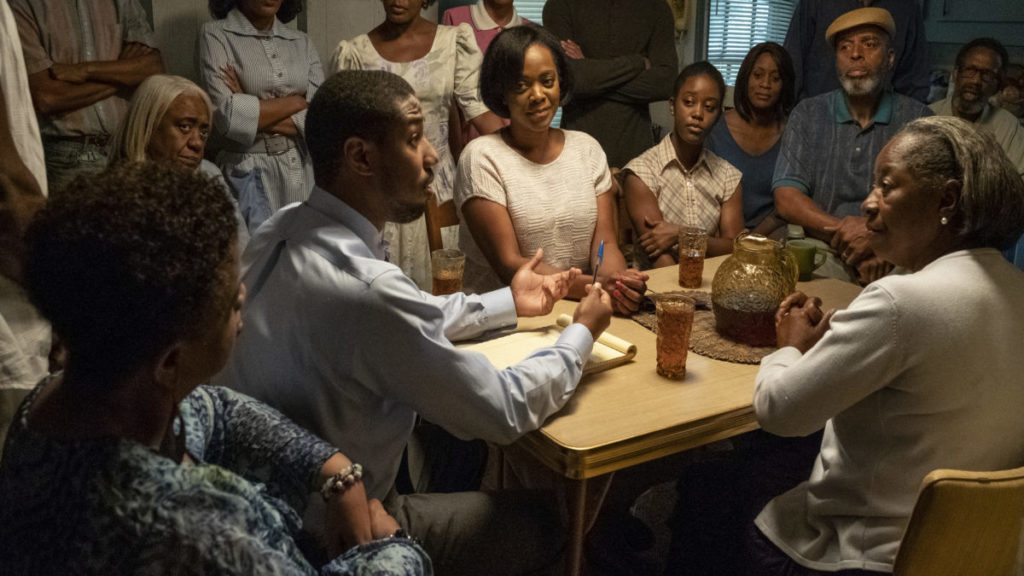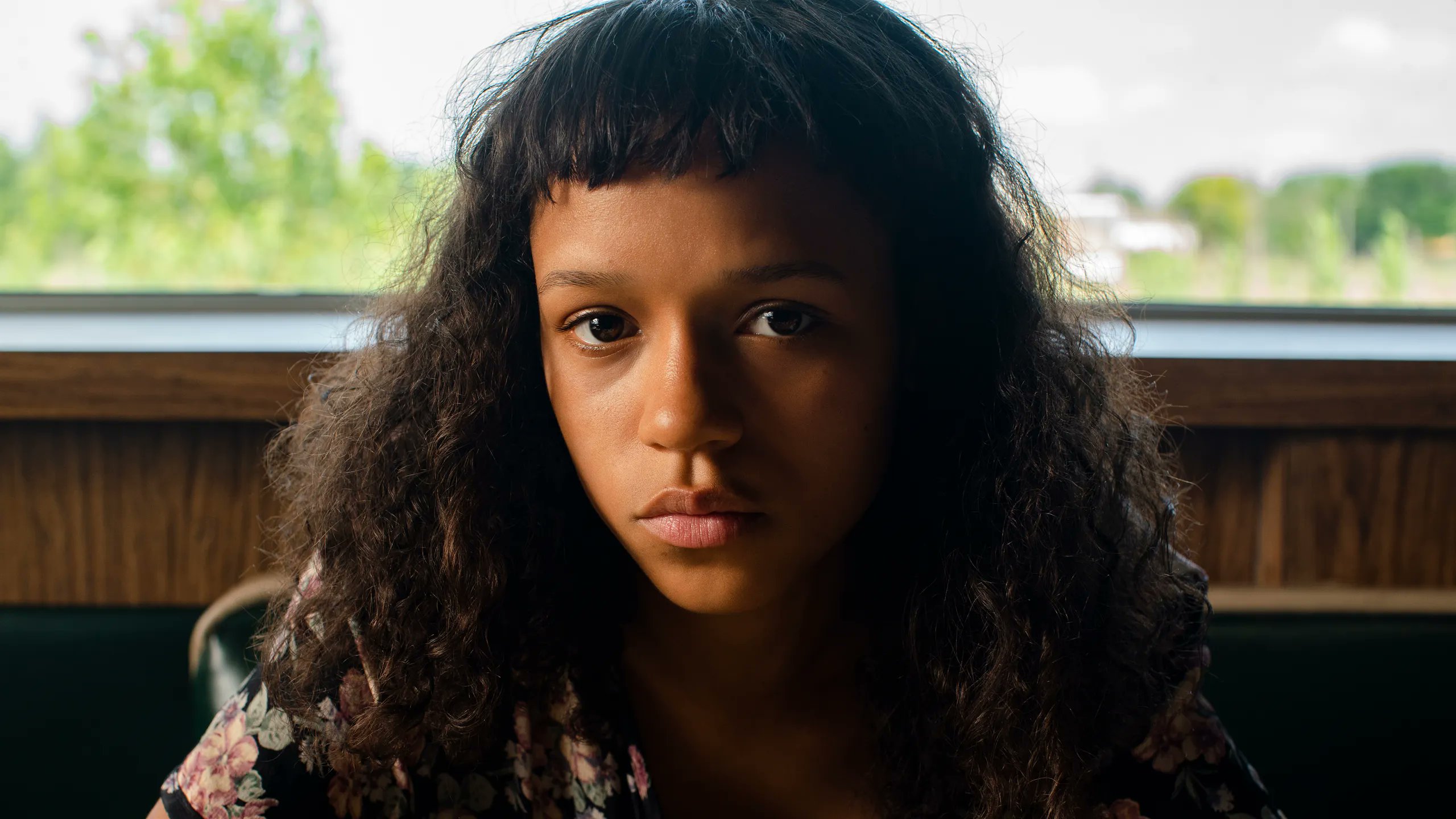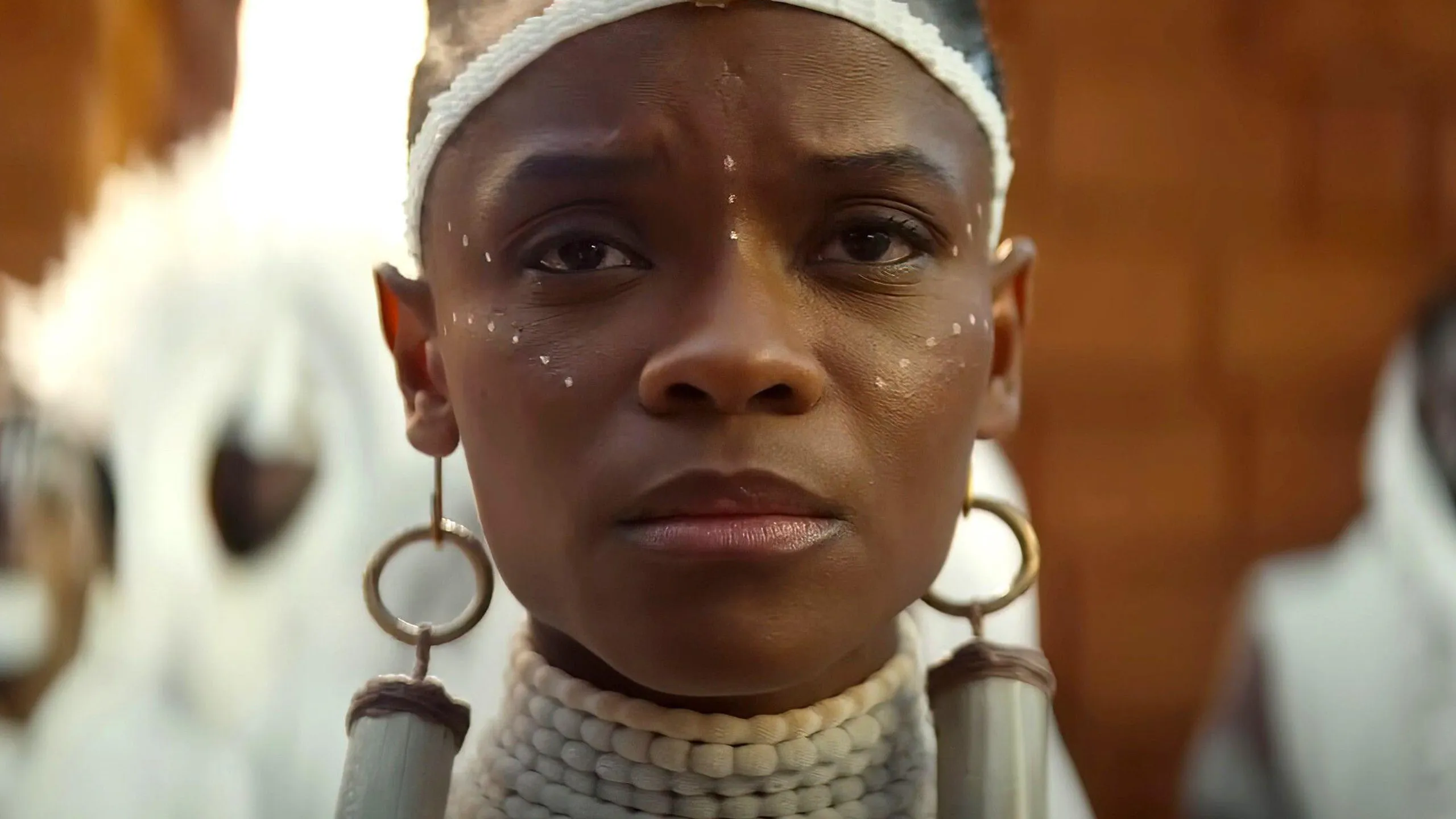
Courtesy of Warner Bros Pictures
‘We are powerful enough’: the cast of Just Mercy on killing the white saviour
Speaking to Michael B Jordan, Jamie Foxx and Bryan Stevenson about the transformative power of black agency
Chanté Joseph
23 Jan 2020
It’s 1987 in the deep south, Monroe County to be exact. Walter McMillan, a 45-year-old African American self-employed logger, is driving home from work, listening to the radio, when he is swarmed by a barricade of flashing police cars. You can see the glimmer fade from his eyes and his breath quicken as he slowly raises his hands to the steering wheel as a declaration of peace. This was the day that would change Walter’s life forever.
Just Mercy, directed by Destin Daniel Cretton, follows the story of Bryan Stevenson (Michael B Jordan), a hopeful Harvard graduate who heads to Alabama to offer those wrongly convicted, or without proper representation on death row, adequate legal support. The story details one of his very first cases representing Walter McMillan (Jamie Foxx), who in 1987 was wrongly convicted and put on death row after he was accused of killing a white woman. Standing in the way of his freedom is a bribed witness testimony and a deeply racist judicial system.
As frustrating as Just Mercy is, it’s also inspiring. Bryan, a lifelong criminal justice campaigner and social justice activist, is being continuously let down by the justice system but is also adamant that he will prevail and fights tooth and nail to win.
In the lead up to the release of the film, Bryan Stevenson, Michael B Jordan and Jamie Foxx are in the very swanky Rosewood hotel in central London. We discuss that this wasn’t just another legal drama, it was a visual representation of the way racism manifests in the very institutions meant to protect citizens. The film is beautifully shot, contrasting the striking landscape of the south with the pained faces victims of America’s faulty justice system.
Bryan Stevenson is hands down one of the smartest people you’ll ever meet. When he speaks, he delivers a hard-hitting message about white supremacy and institutional racism in a tone, I didn’t feel scared into action, I felt invigorated. Michael B Jordan and Jamie Foxx have a long mentor-mentee history that makes their rapport feel genuine and wholesome. They think about my questions and balance the answers between them, always making sure to give their full attention to whoever is speaking and fill the pauses with nods of approval.
This film has been lauded for being one of the very few black stories in Hollywood that doesn’t adjust the narrative to fit in a white saviour. Though Bryan is assisted by local advocate Eva Ansley, played by Brie Larson, the story is not about her saving the day. “This is about a black man being saved by another black man,” Michael tells me. “This is something we don’t see in these types of stories. It sends the message that we have got to help ourselves, we have the tools and we are powerful enough to unify and help one another.”
“This is about a black man being saved by another black man”
Michael B Jordan
There is very little difference between the barriers and racism faced by African Americans today than in the ’80s as demonstrated by the film. “It’s sad,” Michael tells me, “stories like this are so common, it kind of desensitises how we feel about it.” Though (spoiler alert) Bryan wins this case, there are difficult losses along the way that he has to process all while focusing on proving the innocence of other clients. “I want you to feel upset, I want you to feel frustrated. But then also I want to feel optimistic and hopeful,” Michael tells me. “[The film] made me more confident to walk with my head held high and be a part of that change.”
Michael has already begun doing important work in the film industry, part of his contract to be in this film was the implementation of an inclusion rider which meant that there had to be on-screen and off-screen diversity as part of the production. This idea was sparked by Frances McDormand, who, during her best actress acceptance speech at the Academy Awards, encouraged people to adopt inclusion rider clauses in their contracts. Michael then took this a step further with his own production company, Outlier Society Production, by adopting the inclusion rider approach for all of his projects.
With Walter only being released in 1993 – which doesn’t feel that long ago – Just Mercy leaves viewers with little to no faith in the criminal justice system. At the end of the film, you are reminded that one in nine people on death row are innocent. If there ever was a more compelling reason to abolish the death penalty this would surely be it?
“We have so many elected officials who’ve been preaching fear and anger to gain power,” Bryan explains. From Clinton’s “super predator” comments to Trump’s blind commitment to being “tough on crime”. “They want to be perceived as tough on crime and don’t want to be seen conceding that we have made mistakes. This kind of political environment makes it hard to create the reforms we need to make.”
Even when people are freed as in Walter’s case, the long term impact of jail time is irreversible. Walter never fully recovered from his time in prison and died of early-onset dementia, thought to be brought about due to the trauma he suffered. Despite knowing the faults in the justice system, its inability to effectively rehabilitate and the long term mental health effects experienced by ex-prisoners, the conversation around prison abolition feels even more relevant. Bryan takes a different line on this: “There are real people whose lives are at risk facing execution. There are real people in jails and prisons right now facing extreme abuse and I don’t want to deal with abstractions, I really want to deal with the reality.”
The film reminds us that you can’t educate or earn your way out of feeling the effects of racism. Bryan is an educated Harvard Law graduate, but he was still the subject of racist abuse for poking the legal bear and getting under the skin of officials. “We have a criminal justice system that treats you better if you’re rich and guilty than if you’re poor and innocent. Wealth, not culpability, shapes outcomes,” Bryan says assuredly. “It’s one of the reasons why we can’t claim to have a justice system until we do something about these economic disparities.”
Just Mercy is a powerful film that affirms everything we already know about global injustices but makes us realise how much deeper they go and also gives us the inspiration to fight for ourselves. “I’ve often said that the opposite of poverty isn’t wealth, I believe the opposite of poverty is justice. That’s why a commitment to justice is necessary to deal with the kind of inequality that we see throughout the world.”

A still from Just Mercy









